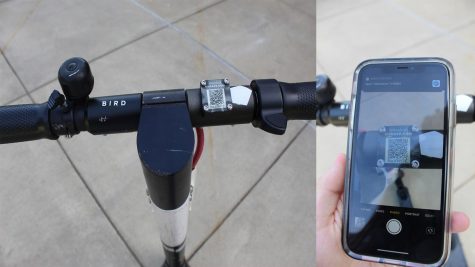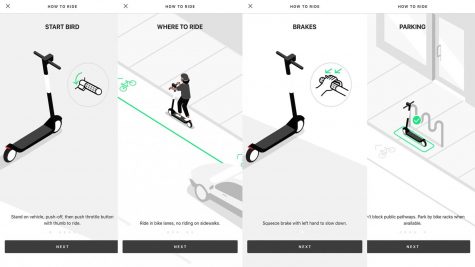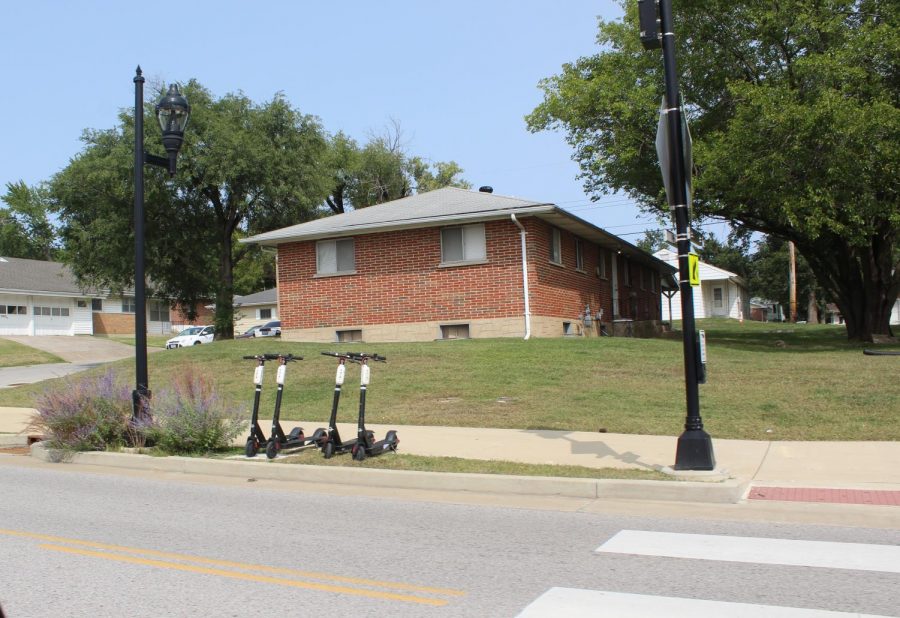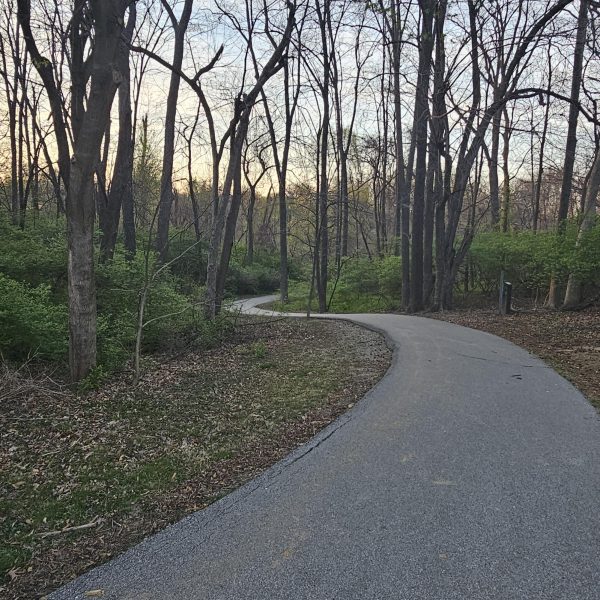Bird scooters have arrived in St. Charles, but Lindenwood officials are asking the scooter company to keep them off-campus
Photo by Mia Tebbe
Bird Scooters parked on the public easement outside Lindenwood Housing on Droste Road.
September 17, 2020
Bird scooters, a sharable transportation service in which riders use a mobile app to rent electric scooters, have turned up at Lindenwood.
Bird scooters are located in over 100 cities and on multiple universities. The scooters have raised a variety of concerns from Lindenwood officials, as they are not permitted on campus.
“A primary concern is the general liability associated with allowing Bird scooters to operate on-campus property,” Ryan Anderson, director of Public Safety and Security, said in an email. “The University does not have insurance coverage related to Bird scooters on any campus property.”
The scooters are currently “nested” on the public easement from the sidewalk to the curb around campus. This means every evening the scooters are returned to these locations by Bird employees. The University is working to have the nesting area changed.
“We are encouraging the Bird scooter company to ‘nest’ off-campus on public property and geo-fence our campus boundaries to not allow scooters to be operable on-campus,” Anderson said.
Public Safety will inform riders on campus and ask them to leave campus property. So far Lindenwood has not taken any extra measures to inform students and community members of these restrictions.

Senior Selena Tuilaepa said she was not aware the scooters were not permitted on campus until stopped by Public Safety.
“I was very irritable about the whole situation because we’re literally harming no one,” Tuilaepa said.
Tuilaepa also said that Bird scooters should be allowed on campus.
“If these were around my freshman year it would’ve saved me the hassle in having to ask friends or upperclassmen for a ride to somewhere as simple as Walmart,” Tuilaepa said. “With the freshman being in the quad now, I feel like they for sure would benefit from a boost up that notorious Spellmann hill heading to class, or anywhere really.”
To operate Bird scooters, users must first locate a scooter. From there, users scan a QR code that is located on the scooter. Once the code is scanned, it will direct users to download the Bird app or open up the scooter in the app.

The app will then prompt riders to add a balance to their ride, agree to the Rental Agreement, sign a Waiver of Liability and Release, and then give riding instructions.
All riders must wear a helmet and rides cost $1 to start and $0.39 per minute plus tax, according to the Bird app.
“They’re fairly easy to operate,” Tuilaepa said. “The app helps with most of the confusion that may arise.”


















